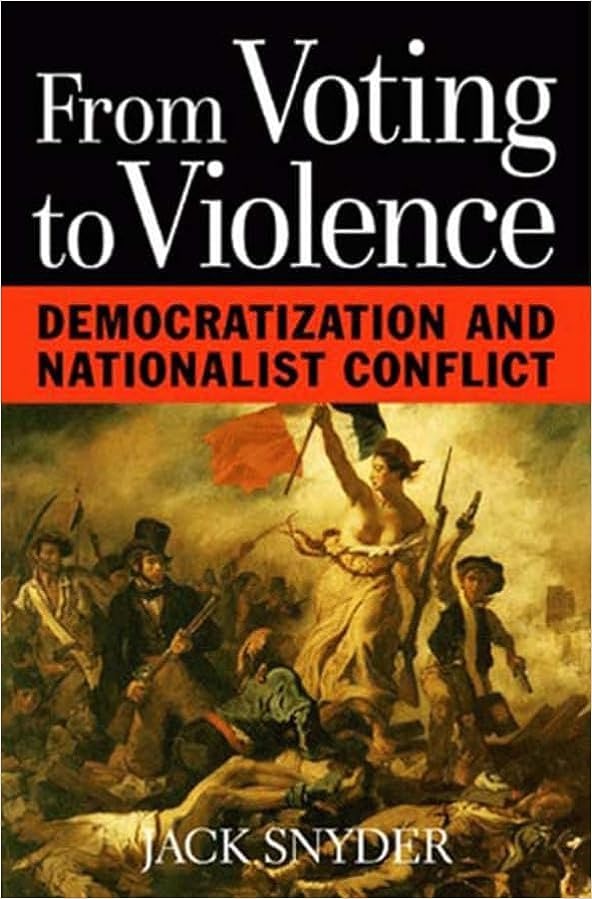By Jack L. Snyder

About this book
With the collapse of the Berlin Wall in 1989, many proclaimed the triumph of liberal democracy as they watched democratization sweep through formerly authoritarian countries in Latin America, Eastern Europe and East Asia. Yet the 1990s turned out to be a decade marked by chronic nationalist conflict and the sense of democratic triumph turned to frustration. Jack Snyder shows how democratization can actually exacerbate nationalist fervour and ethnic conflict if the conditions permitting a successful transition are not in place. Arguing that international organisations can cause conflict rather than averting it in their rush to establish democratic governments and punish outgoing leaders, he prescribes policies that will make transitions less dangerous and allow fledgling democracies to flourish. In the light of such tragic examples as Weimar Germany and contemporary Bosnia - each drawn into a spiral of ethnic hatred and civil war by political leaders manipulating nationalist sentiments - he questions the sometimes rash optimism of liberal democracy that would rush to democracy at the cost of freedom.
Author information
Jack L. Snyder is the Robert and Renee Belfer Professor of International Relations in the Department of Political Science and the Saltzman Institute of War and Peace Studies at Columbia University. He holds a Ph.D. from Columbia. His books include Electing to Fight: Why Emerging Democracies Go to War, coauthored with Edward D. Mansfield (MIT Press, 2007) and From Voting to Violence: Democratization and Nationalist Conflict (W.W. Norton, 2000). His articles on such topics as crisis diplomacy, democratization and war, nationalism, imperial overstretch, war crimes tribunals versus amnesties, international relations theory after September 11, and anarchy and culture have appeared in Foreign Affairs, Foreign Policy, International Organization, International Security, and World Politics. Professor Snyder teaches graduate and undergraduate courses on nationalism, comparative methods, and grand strategy. Professor Snyder is a Fellow of the American Academy of Arts and Sciences and an elected member of Columbia's Arts and Sciences Policy and Planning Committee. He is the editor of the Norton Series in World Politics.
-
Xi urges teachers to contribute more to realizing national rejuvenation
Xi urges teachers to contribute more to realizing national rejuvenation
-
Chinese premier calls for advancing economic globalization, unity within G20
Chinese premier calls for advancing economic globalization, unity within G20
-
China's opening-up, improved business environment garner foreign investors' confidence
China's opening-up, improved business environment garner foreign investors' confidence
-
Russian-Chinese forum "Rostki" boosts practical cooperation
Russian-Chinese forum "Rostki" boosts practical cooperation